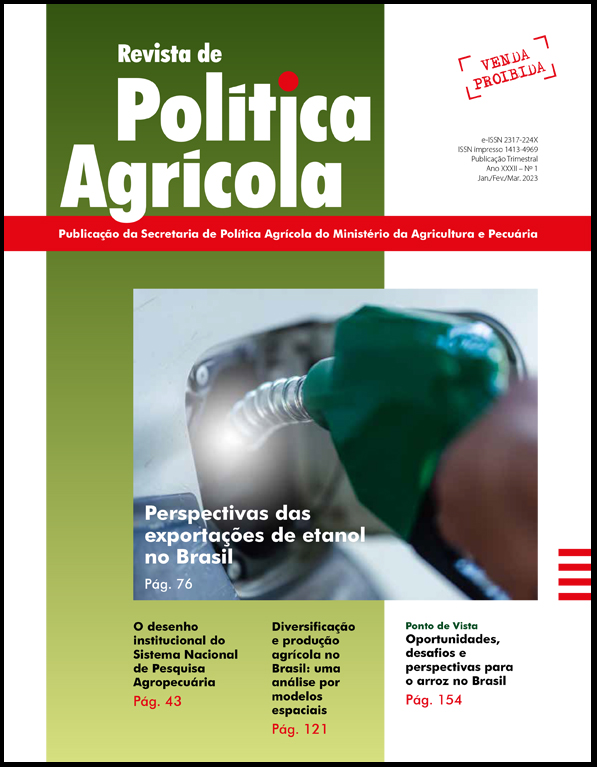Historical and current context of livestock insurance in Brazil and worldwide
Keywords:
Forward contract, livestock, moral hazard, adverse selection.Abstract
Like any production process, livestock is subject to several risks, such as mortality and price fluctuations of animals, or even inputs. One way of mitigating these risks to the producer is the use of insurance, which consists in transferring uncertainty to a company that will charge a premium for this service and will pay a compensation, in case of a claim covered by the policy. Although livestock insurance is widely used by the public, this financial instrument is still underdeveloped and used by animal breeders in developing countries, such as Brazil. On that account, we observed that there is a great potential for growth of this tool in the country, due to the expressive national productive capacity. In addition, a scarcity of literature on the subject was identified, which justifies the present study. Therefore, the objective of this work was to prepare a systematic literature review on the topic, to compile articles and provide a basis for future studies. In this context, we noticed that one of the disadvantages of this insurance is the presence of adverse selection and moral hazard. We also found that the forward and/or futures contracts are the most used instruments in Brazil for risk mitigation.Downloads
Published
2023-04-25
How to Cite
Dal Pozzo, B. S., Gasparetto, S. C., Benicio, L. M., Gomes, P., & Ozaki, V. A. (2023). Historical and current context of livestock insurance in Brazil and worldwide. Revista De Política Agrícola, 32(1), 7. Retrieved from https://rpa.sede.embrapa.br/RPA/article/view/1792
Issue
Section
Artigos Científicos


